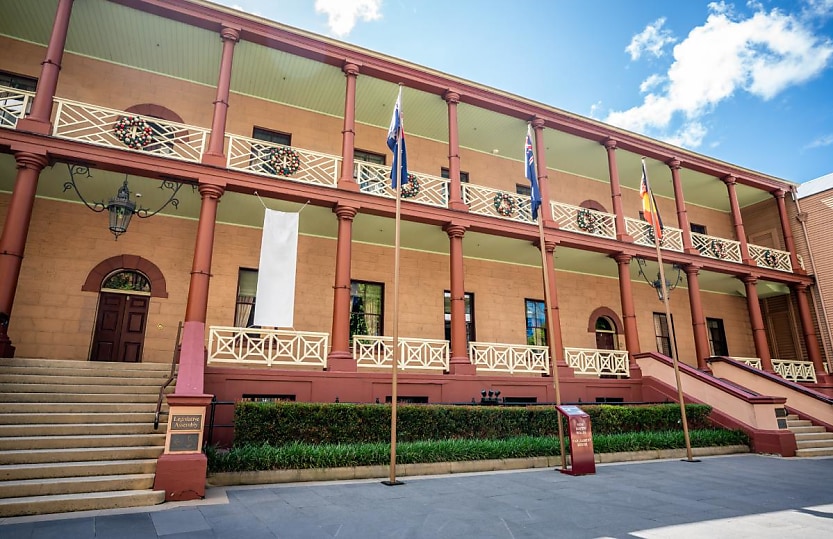Committee finds ‘excessive and undue use’ of consultants by NSW Government

The overuse of consultants by the NSW Government has led to the "degradation of public sector capacity", an inquiry report has found.
The NSW Legislative Council's Public Accountability and Works Committee tabled its report into the NSW Government's use and management of consulting services on Wednesday, making a wide range of recommendations.
“The committee found that NSW Government agencies have demonstrated an undue and excessive reliance on the use of external consulting firms, and that this reliance on consultancies has occurred alongside and resulted in a reduction in public sector skill and capacity,” said Committee chair Abigail Boyd.
“The committee has made a suite of recommendations to address these concerns, including incorporating skills transfer requirements into consulting engagements.”
Boyd said it is vital that there is greater transparency and accountability around the engagement of consulting services.
“A number of the committee's recommendations seek to improve the collection of data on consultant and contractor spend, ensure that post-engagement evaluations are completed, and require greater openness as to which consultancies are used and the amounts they have been paid.”
The report also seeks to to prevent and address unethical behaviour associated with consulting engagements, particularly the 'tick and forget' culture that has developed around the management of conflicts of interest, said Boyd.
The Committee has also recommended in the report that the NSW Treasurer advocate to federal counterparts that consulting firms “not be excluded from the requirement to pay company tax”.
In its report, the Committee said it was clear that consulting firms are, in practice, akin to 'pseudo-corporations'.
“We are of the view that it is only appropriate that they are taxed accordingly and recommend that the NSW Treasurer advocate to federal counterparts that consulting firms not be excluded from paying company tax,” it said.
It has also recommended that the NSW Government introduce legislation to amend the Payroll Tax Act 2007 to require large consulting firms to pay payroll tax on partnership earnings.
The committee has also recommended that there be a far more expansive view of what constitutes a potential conflict of interest.
“It also recommended that the NSW Government should be responsible for determining whether a conflict of interest exists, rather than leave this as a matter for the consultancies,” said Boyd.
The Committee chair said years of poorly managed relationships and excessive use of consultants has resulted in a weakened public sector.
“Beyond merely reducing our contracting of external consultants, it will take some time to rectify this degradation of public sector capacity,” she said.
“This work must begin now, and I am hopeful that this inquiry will have made a meaningful contribution towards the restoration of the NSW public sector.”
Commenting on the report, Chartered ANZ (CA ANZ) said it welcomed recommendations made by the Committee to embed ethical behaviours into the NSW Government’s Supplier Code, particularly in relation to the identification, declaration, and management of conflicts of interest.
“The people of NSW need to be able to trust that the government is spending public money responsibly,” said CA ANZ chief executive Ainslie van Onselen.
“Measures to ensure greater levels of transparency and accountability in work being carried out by consultants to restore that trust is welcomed.”
However, CA ANZ said it does not support the recommendations regarding company and payroll tax.
CA ANZ Senior Tax Advocate, Susan Franks said arbitrarily imposing payroll tax on accounting partnership profits “needlessly adds increased complexity to a tax that is already difficult to apply”.
“It is also inequitable and may increase costs for businesses who need accounting services,” said Franks.
Franks said the committee’s recommendation would change the nature of payroll tax from a tax on labour to a tax on profits.
“Partnership distributions are a return on a multitude of inputs – capital, goodwill, intellectual property as well as labour. This recommendation, if implemented by the Government, could hinder business investment and innovation,” Franks said.
CA ANZ noted that the NSW Government has three months to consider its response to these recommendations and that CA ANZ would pay close attention to any developments.
“The good standing of Chartered Accountants in the community must never be taken for granted,” said van Onselen.
“This, and other inquiries and processes currently underway at the federal level, have provided an important opportunity to clarify the important role we play as a membership body and make our profession even stronger.
“We will continue our work to further strengthen the regulatory framework and reinforce trust in multi-disciplinary firms and our profession, but we also want to avoid punishing all the hardworking accountants that are doing the right thing.”
About the author

